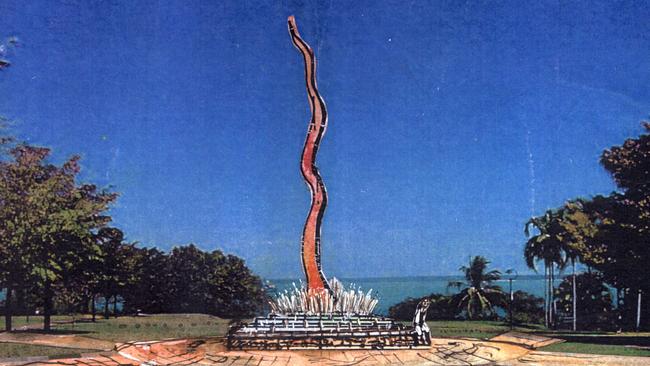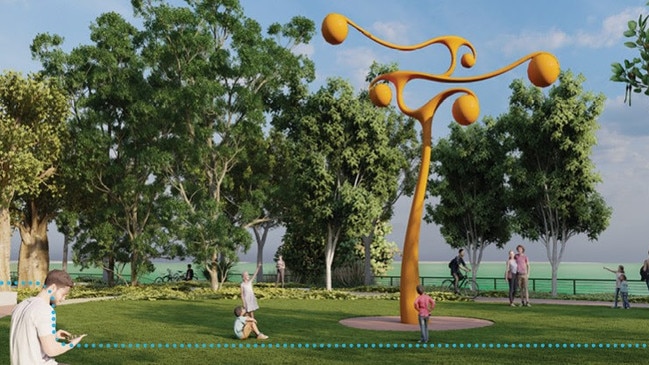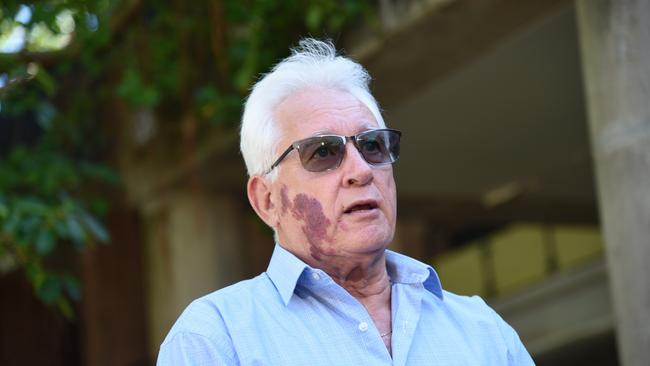Darwin Council’s cyclone tribute has echoes of failed Stuart Spire
“Let’s get used to it”: Lord Mayor Kon Vatskalis wants Darwin to embrace public art, but there is a history of resistance.
Business
Don't miss out on the headlines from Business. Followed categories will be added to My News.
The current argument around the proposed Cyclone Tracy public art memorial proposed for Bundilla Beach has echoes of the contentious Stuart Spire proposal from 20 years ago.
Back then the old Darwin City Council wanted to construct a 12m sculpture where Daly St meets the Esplanade to acknowledge the extraordinary journey of John McDouall Stuart, the first person to cross the continent from north to south.
Local artist Ro Koch Laurie’s 2002 design was intended to replicate the route taken by Stuart and his team on the successful 1862 expedition up the country’s guts.

But howls of protests from organisations like the Planning Action Network saw council back away from the proposal and the Stuart Spire was never built.
A government minister at the time of the Stuart Spire debate, Lord Mayor Kon Vatskalis wants a different outcome for the Bundilla Beach sculpture than its infamous predecessor from early this century.
After weeks of angry debate through the NT News’ letters pages and other media, council decided to scrap the controversial development.

A collaboration with the Cyclone Tracy Commemoration Advisory Committee, the $700,000 Bundilla Beach “kinetic sculpture” would be 8m tall, and have rotating tentacles extending 9m from the shaft, which will move in the wind.
Mr Vatskalis said as well as commemorating Cyclone Tracy, the Bundilla Beach sculpture would help address criticism by visitors to Darwin that there is no Harbour Bridge or Opera House to be photographed with that relates specifically to our city.

Mr Vatskalis said when he travels he looks for “signature” locations to take photographs and the Bundilla Beach sculpture would perform a role the Stuart Spire could have had it been built two decades ago.
“If we had the Stuart Spire here, that would be a place where people could be photographed all the time,” he said.
“When I go around the world, I always find a place, a signature public place, where I can take a photograph.”
Mr Vatskalis said public art projects in Darwin had a history of criticism, with the metallic jellyfish sculpture at the East Point entrance copping plenty of resistance when it was proposed, before eventually becoming a popular visitor spot.
“I still remember the vitriol, the comments about how expensive it was, how ugly it was and now everybody takes photos of it. We’re very parochial, we don't like things – well let’s get used to it.
“We live in a very big world now and if we want to make our city a place for people to visit, then we have to give something different, and this is something different.”





